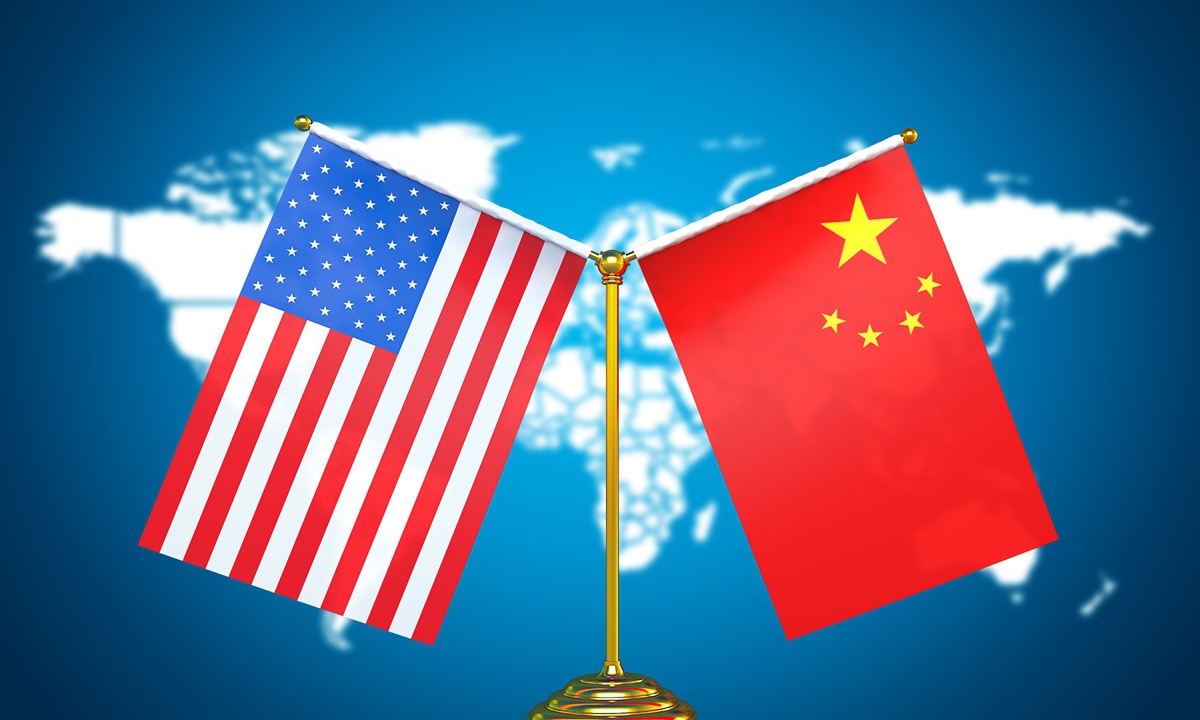China, US should take San Francisco summit as new starting point to implement consensus: top diplomat

Photo:VCG
China has no intention to replace or surpass anyone, nor does it seek hegemony, China's top diplomat Wang Yi said while attending a reception for the 45th anniversary of China-US diplomatic relations held in Beijing on Friday. Both China and the US should take the top leaders' summit in San Francisco as a new starting point and follow the path of mutual respect, peaceful coexistence, and win-win cooperation to interact, truly implementing the important consensus reached by the two heads of state, said Wang.
Wang, a member of the Political Bureau of the Communist Party of China Central Committee and Chinese foreign minister, noted in his speech that over the past 45 years, China-US relations have overcome difficulties, eliminated interference, and forged ahead. The journey of China-US relations over the past half century has yielded valuable insights concerning the fundamental nature of the bilateral relationship.
Wang noted that peace is the fundamental cornerstone of China-US relations. The fact that the two major countries do not conflict or confront each other is itself the most important peace dividend for humanity.
Cooperation is the best way for China and the US to coexist, Wang said, noting that under the current circumstances, the necessity of China-US cooperation has not weakened but has become even stronger. China-US cooperation is not optional and needs to be seriously addressed for the sake of both countries and the rest of the world.
Win-win cooperation is the essential characteristic of China-US interactions. Arbitrarily pushing decoupling and containment will inevitably result in more losses than gains and will backfire, said Wang.
Wang emphasized that the world is currently experiencing unprecedented changes. As the most important and complex bilateral relationship in the world, it is crucial for China and the US to calibrate the direction of their relationship, avoid reefs and dangers, and navigate through historical canyons.
In November last year, the two heads of state of China and the US had a historic meeting in San Francisco, providing direction and injecting impetus for bilateral relations. Both sides should take the summit as a new starting point and follow the path of mutual respect, peaceful coexistence, and win-win cooperation as the way for the two countries to interact, truly implementing the important consensus reached during the meeting, Wang said.
He also urged the US to establish a correct cognition. "Are China and the US partners or competitors? This is a fundamental question," said Wang, noting that China has no intention to replace or surpass anyone, nor does it seek hegemony. China is willing to build a stable, healthy, and sustainable China-US relationship based on mutual respect.
It is hoped that the US side can relax its mindset, respect the choices of the Chinese people, respect China's development path, respect China's core interests, and respect China's defense of national sovereignty and territorial integrity, Wang said.
Wang also noted that both sides should continue to make full use of various mechanisms established or restored in various fields, penetrate barriers created by false information, constantly strengthen the bond between the two peoples, and provide more positive energy for the healthy development of China-US relations.
It is expected that people from all walks of life in both countries will be spirited and vigorous, and promote China-US relations in the right direction, said Wang.
David Meale, Chargé d'Affaires at the US Embassy in China also delivered a speech at the reception, congratulating the 45th anniversary of the establishment of diplomatic relations between the US and China, and expressing the US' willingness to implement the consensus reached by the two heads of state and promote the stable development of China-US relations.
The Friday reception was jointly organized by the Chinese People's Association for Friendship with Foreign Countries and the Chinese People's Institute of Foreign Affairs, with more than 350 people from various sectors of both countries attending.
Global Times
